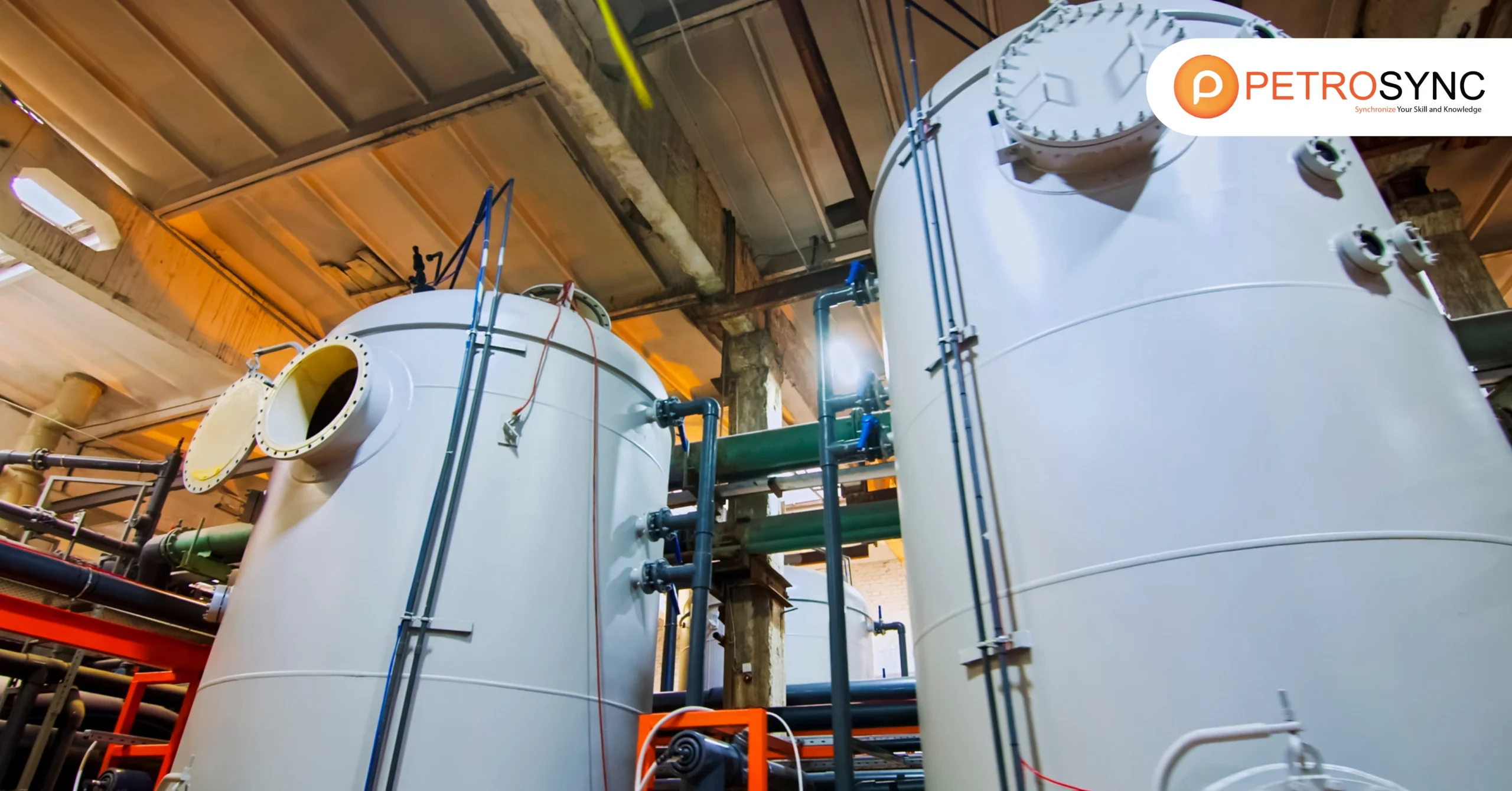ASME certification holds immense value for both engineers and companies across diverse industries. It serves as a prominent symbol of excellence, attesting to an engineer’s competence and expertise within their respective field.
Simultaneously, companies benefit greatly from having ASME-certified engineers as part of their workforce. Such certification signifies a commitment to upholding quality standards and complying with internationally recognized norms. In this article, we will dive deep into ASME certification and its various certifications and accreditation.
What Is An ASME Certification?
ASME certification is a formal accreditation awarded by the American Society of Mechanical Engineers (ASME) to individuals or organizations that fulfill precise standards in mechanical engineering. ASME certifications acknowledge the proficiency, expertise, and commitment to industry standards.
This widely-accepted set of standards, developed by ASME, establishes guidelines for ensuring safety in the design, manufacturing, and operation of boilers and pressure vessels. Obtaining ASME certification signifies compliance with these standards, demonstrating a commitment to safety and quality in mechanical engineering.
The ASME certifications validate aptitude, knowledge, and qualifications across diverse domains of mechanical engineering, guaranteeing the reliability, excellence, and safety of mechanical systems and components during their design, production, and operation.
What Is ASME Certification Mark?
The ASME Certification Mark (The MARK) is the international mark of safety and quality. This mark indicates that a specific product, equipment, or system meets the established standards and requirements defined by ASME.
Further, it signifies that the item has undergone thorough evaluation, testing, and quality assurance procedures to ensure its compliance with industry-recognized safety, performance, and reliability standards.
By displaying the ASME certification mark, manufacturers convey to customers and stakeholders that the product or equipment meets the prescribed criteria, ensuring its quality, integrity, and alignment with ASME standards.
What Are The Types of ASME Certification?
ASME offers a range of certifications tailored to different industries and specialized fields. Let’s explore some of the key types of ASME certification available:
1. Bioprocessing Equipment Certification
Products that bear the ASME Bioprocessing Equipment (BPE) Certification have been manufactured following the ASME BPE standard called “Bioprocessing Equipment.”
This standard outlines the necessary criteria for designing equipment used in industries such as bioprocessing, pharmaceuticals, personal-care products, and other applications that demand high levels of hygiene.
2. Boiler/Pressure Vessel Certification
The ASME BPVC Certification Program ensures compliance with regulations for the design, fabrication, assembly, and inspection of boiler and pressure vessel components. Introduced in 1916, this certification program validates the quality control systems of companies in the pressure equipment industry. Products manufactured by ASME BPVC Certificate Holders receive the Certification Mark, indicating adherence to the applicable ASME BPVC Section.
3. Nuclear Component Certification
Since the initial release of the ASME BPVC in 1963, ASME has played a crucial role in providing essential support to the nuclear power sector. The Code remains highly relevant and applicable to large-scale and smaller modular reactors (SMRs), microreactors, and advanced reactor technologies.
The Society provides various nuclear certificates, including N-type and G-type certificates and an owner’s certificate. These certificates authorize specific scopes of equipment:
- N – Vessels, pumps, valves, piping systems, storage tanks, core support structures, concrete containments, and transport packaging
- NA – Field installation and shop assembly of all items
- NPT – Parts, appurtenances, welded tubular products, and piping subassemblies
- NS – Supports
- NV – Pressure relief valves
- N3 – Transportation containments and storage containments
- OWN – Nuclear power plant owner
- G – Design of Graphite or Composite Core Components and Assemblies
- GC- Graphite or Composite Core Components and Assemblies
4. Nuclear Material Org Certification
The Nuclear Material Organization Certification Program certifies organizations that supply materials and services to the nuclear industry. ASME issues Quality System Certificates (QSC) to verify the adequacy of a Material Organization’s quality system program.
This program ensures that the organization’s operations and services related to material procurement, manufacturing, and supply comply with ASME BPVC requirements (Section III, NCA-3800 and NCA-3900).
5. Nuclear Quality Assurance Certification
The ASME NQA-1 Certification Program ensures quality assurance programs conform to the ASME NQA-1 standard for nuclear facility applications. Trained ASME auditors conduct thorough audits of the Quality Assurance Program to obtain the NQA-1 Quality Program Certificate.
This certification is relevant to nuclear facilities, including power plants, reactors, and facilities handling radioactive materials. It aims to enhance the supply chain by engaging organizations dedicated to delivering high-quality products and services in the nuclear industry.
6. RTP Certification
The ASME RTP Corrosion-Resistant Equipment Certification Program applies to stationary vessels that store or process corrosive substances. The program includes hand lay-up, spray-up, and filament wound fabrication methods.
ASME RTP certificates can cover field assembly, repair, and fabrication. The Certification Mark with an RTP Designator indicates vessels made by a certified fabricator with a valid ASME RTP Certificate of Authorization.
7. Quality Program for Suppliers
The QPS Certification Program is designed to supplement technical standards lacking dedicated quality sections. Its application enhances the quality of items supplied to the general industry. This program suits organizations of any type or size in the general industry.
Examples include raw material manufacturers, material manufacturers, manufacturers with or without design responsibility, and service providers such as NDE, auditing, heat treating, welding, machining, and coating.
How Is ASME Certification Process?
The process of obtaining ASME certification involves a well-structured and thorough approach aimed at upholding industry standards and ensuring the achievement of quality assurance.
1. Preparation
To prepare for ASME accreditation or certification, it is advisable for applicants to carefully review all program-related information, including forms, checklists, and associated fees.
This step ensures applicants comprehensively understand the accreditation/certification program before submitting their application.
Before submitting an application, it is recommended to:
- Familiarize yourself with the relevant certification program information available on ASME’s website.
- Determine the scope of work that the ASME certification will cover.
- Obtain the required standards for compliance.
- If applicable, establish an agreement with an Authorized Inspection Agency (AIA) as specified by the relevant standard.
- Prepare a quality manual, a written description of the organization’s quality program.
- Provide proper training and orientation to personnel to effectively implement the quality program.
2. Application
To pursue ASME accreditation/certification, organizations must fulfill certain requirements. These include submitting the appropriate application forms and fees before a review/survey date can be scheduled.
You can check for the full application on ASME official website.
3. Assessment
The review/survey process aims to assess the applicant’s quality manual and the execution of their quality program. ASME will determine the scope of assessment based on the applicant’s stated activities in the application.
This evaluation guarantees that the applicant’s quality program has been implemented effectively and aligns with the requirements specified in the relevant ASME standard. Upon completion of the assessment, the team leader overseeing the review/survey will provide a written report to ASME.
4. Certification
ASME will issue a certificate upon successfully demonstrating the applicant’s quality program to the ASME review/survey team. Following the review of the team’s report, ASME will either approve the certificate issuance or request further action from the applicant. Certificate holders can request modifications to their certificate(s) after issuance.
Enrolling in PetroSync’s ASME training course can greatly support your journey to obtaining ASME certification. These courses are designed to provide comprehensive knowledge and skills aligned with ASME standards like ASME Section I – Power Boilers, ASME B31.3 – Process Piping Code Design Requirements, and ASME PCC-2 Repair of Pressure Equipment.
Participating in these programs will give you valuable insights into certification requirements, codes, and regulations set by ASME. PetroSync training equips you with the necessary expertise and understanding of industry-specific practices, enabling you to effectively implement quality management systems and ensure compliance with ASME standards.
Enroll in PetroSync’s ASME training which increases your chances of successfully obtaining ASME certification and demonstrates your commitment to upholding the highest standards of quality in your area of specialization!

SEO specialist by day, fact-checker by night. An avid reader and content writer dedicated to delivering accurate and engaging articles through research and credible sources.







